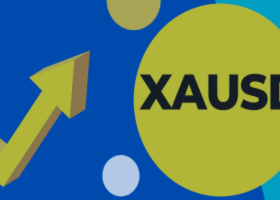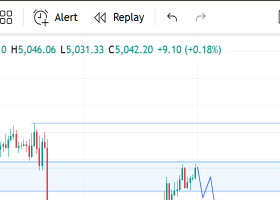It's been a decent 12 months for the greenback. Since June 2014, the dollar's exchange weighted quality has risen in the range of 17 percent. Both the Bank of Japan and the European Central Bank have reported new financial jolt inside of the most recent year, with Japan adding to existing resource buys in October 2014 and the European Central Bank presenting a just took the ribbon off new bond-purchasing program in January 2015. Speculators who took positions that expected the dollar acknowledging against the yen and/or the euro have benefitted abundantly. In any case, now, Credit Suisse cash strategists say, the solid dollar exchange will be better accomplished with developing business sector monetary forms and/or created economies that depend intensely on product sends out on the opposite side of the exchange.
Much appreciated in vast part to the probability of rising premium rates in the U.S., Credit Suisse conjectures that the dollar will acknowledge against both developing business monetary forms and those in the G10 (the euro, Canadian dollar, pound, Australian dollar, and Japanese yen) throughout the following three to six months. The Federal Reserve's Federal Open Market Committee as of late reaffirmed that the first increment in benchmark premium rates will probably happen before the end of the year, and Credit Suisse accepts there will be a climb in September.
In any case, the strategists believe that we've likely as of now seen the most emotional cash discouraging impacts of national bank mediation in Europe and Japan. The European Central Bank just started its quantitative facilitating program in March, and it's impossible that national brokers will report extra facilitating measures at any point in the near future, particularly since the current system gives off an impression of being working. Private-segment utilization in the EU has been consistently ticking up, with year-over-year development ascending from 1.0 percent in the second from last quarter of 2014 to 1.5 percent in the fourth and 1.7 percent in the first quarter of 2015. Concerning Japan, Credit Suisse market analysts Hiromichi Shirakawa and Takashi Shiono surmise that with rising sustenance costs poking general swelling desires higher, it's impossible that the national bank will add to its current boost before year-end.
For financial specialists hoping to get the most upside out of an in number dollar exchange, Credit Suisse proposes that developing business monetary standards are prone to see probably the most sensational movements against the greenback in the advancing months. Rising rates—or even the danger of them—have a tendency to make life troublesome for developing business economies, especially those with high current record shortages. Those nations rely on upon capital inflows to support their operations, and when rates are low in the United States, as they have been for as far back as six years, speculators are normally glad to oblige. Be that as it may, when rates are rising, speculators begin moving their cash back to the relative wellbeing of the United States. The South African rand, Brazilian genuine, Mexican peso, and Turkish lira look especially powerless against capital surges this time around, the strategists say.
Created economies that incline intensely on wares are additionally ready to see their coinage sink against the dollar. Antipodean national banks, specifically, have been cutting premium rates with an end goal to jolt their economies. Therefore, the Australian dollar is down in the ballpark of 5 percent year to date against the dollar, while the New Zealand dollar is down 12 percent. With no indication of a sensational turnaround in Chinese development not too far off, they will probably straightforwardness much further.
The Reserve Bank of New Zealand cut premium rates by 0.25 percent in June, in extensive part due a sharp decrease in dairy costs. New Zealand, the world's biggest dairy maker, has endured as American makers have expanded yield and a monetary log jam in China has diminished interest for dairy imports. The national bank is considering cutting rates again in July if dairy costs don't progress. Australia, as well, has been battling with lower ware costs, as drowsy Chinese interest has cut the estimation of the iron metal delivered by Australian mines. After the unemployment rate came to a 12-year high of 6.3 percent in January 2015, the Australian national bank cut premium rates in February and March. Further cuts are conceivable.
The unavoidable issue imprint hanging over cash markets—and every other business sector, so far as that is concerned—is Greece. Arrangements have slowed down in front of a due date for Greece to reimburse a $2 billion credit from the International Monetary Fund toward the end of June. In any case, Credit Suisse calls attention to that its dollar methodology ought to likewise work out well if markets swing pointedly into danger off mode. At the point when business sector danger ascents and liquidity diminishes, the dollar has a tendency to do well against developing business sector and product monetar https://www.mql5.com/en/signals/113999#!tab=history
Much appreciated in vast part to the probability of rising premium rates in the U.S., Credit Suisse conjectures that the dollar will acknowledge against both developing business monetary forms and those in the G10 (the euro, Canadian dollar, pound, Australian dollar, and Japanese yen) throughout the following three to six months. The Federal Reserve's Federal Open Market Committee as of late reaffirmed that the first increment in benchmark premium rates will probably happen before the end of the year, and Credit Suisse accepts there will be a climb in September.
In any case, the strategists believe that we've likely as of now seen the most emotional cash discouraging impacts of national bank mediation in Europe and Japan. The European Central Bank just started its quantitative facilitating program in March, and it's impossible that national brokers will report extra facilitating measures at any point in the near future, particularly since the current system gives off an impression of being working. Private-segment utilization in the EU has been consistently ticking up, with year-over-year development ascending from 1.0 percent in the second from last quarter of 2014 to 1.5 percent in the fourth and 1.7 percent in the first quarter of 2015. Concerning Japan, Credit Suisse market analysts Hiromichi Shirakawa and Takashi Shiono surmise that with rising sustenance costs poking general swelling desires higher, it's impossible that the national bank will add to its current boost before year-end.
For financial specialists hoping to get the most upside out of an in number dollar exchange, Credit Suisse proposes that developing business monetary standards are prone to see probably the most sensational movements against the greenback in the advancing months. Rising rates—or even the danger of them—have a tendency to make life troublesome for developing business economies, especially those with high current record shortages. Those nations rely on upon capital inflows to support their operations, and when rates are low in the United States, as they have been for as far back as six years, speculators are normally glad to oblige. Be that as it may, when rates are rising, speculators begin moving their cash back to the relative wellbeing of the United States. The South African rand, Brazilian genuine, Mexican peso, and Turkish lira look especially powerless against capital surges this time around, the strategists say.
Created economies that incline intensely on wares are additionally ready to see their coinage sink against the dollar. Antipodean national banks, specifically, have been cutting premium rates with an end goal to jolt their economies. Therefore, the Australian dollar is down in the ballpark of 5 percent year to date against the dollar, while the New Zealand dollar is down 12 percent. With no indication of a sensational turnaround in Chinese development not too far off, they will probably straightforwardness much further.
The Reserve Bank of New Zealand cut premium rates by 0.25 percent in June, in extensive part due a sharp decrease in dairy costs. New Zealand, the world's biggest dairy maker, has endured as American makers have expanded yield and a monetary log jam in China has diminished interest for dairy imports. The national bank is considering cutting rates again in July if dairy costs don't progress. Australia, as well, has been battling with lower ware costs, as drowsy Chinese interest has cut the estimation of the iron metal delivered by Australian mines. After the unemployment rate came to a 12-year high of 6.3 percent in January 2015, the Australian national bank cut premium rates in February and March. Further cuts are conceivable.
The unavoidable issue imprint hanging over cash markets—and every other business sector, so far as that is concerned—is Greece. Arrangements have slowed down in front of a due date for Greece to reimburse a $2 billion credit from the International Monetary Fund toward the end of June. In any case, Credit Suisse calls attention to that its dollar methodology ought to likewise work out well if markets swing pointedly into danger off mode. At the point when business sector danger ascents and liquidity diminishes, the dollar has a tendency to do well against developing business sector and product monetar https://www.mql5.com/en/signals/113999#!tab=history



